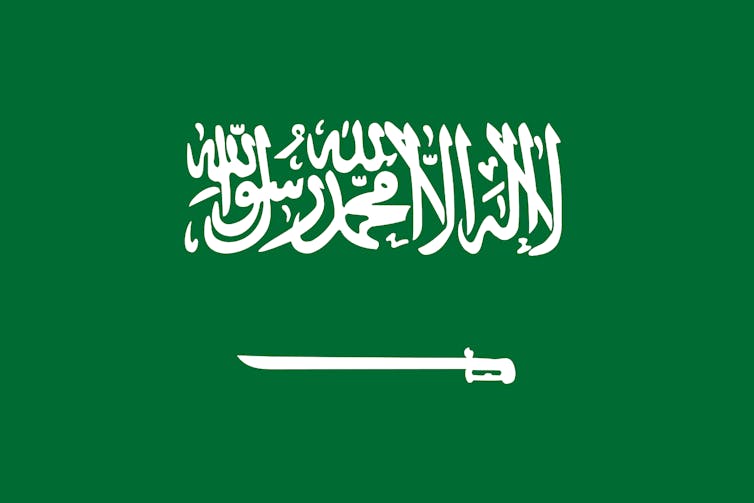The Australian government may make the Muslim community a target through an ill-informed proposal.
New legislation has been introduced to parliament to outlaw the public display of “prohibited symbols”. These include two Nazi symbols and the Islamic State flag.
The bill was initially introduced to ban the Nazi Hakenkreuz (swastika) symbol as Australia tries to deal with a rise in Neo-Nazi activity. Neo-Nazi groups are becoming a greater threat as they try to recruit new members and are becoming more brazen through public displays, according to ASIO Director-General Mike Burgess.
The Islamic State flag was not in the initial bill. To justify its late addition, Attorney-General Mark Dreyfus said the IS flag symbolised the “abhorrent actions taken by one of the world’s deadliest and most active terrorist organisations”.
According to the proposed bill, the IS flag is to become a prohibited symbol. Anything that “so nearly resembles” the IS flag such that “it is likely to be confused with, or mistaken for” the IS flag, is also to be banned.
The bill then details what is meant by public display: “if it is capable of being seen by a member of the public who is in a public place”.
This can include documents such as newspapers or a magazine. Basically, anywhere in public where the “symbol” can be seen.
But this is problematic because the IS flag hijacks words which are sacred for all Muslims. The IS flag ban will likely create more problems than it solves and should be removed from the legislation. Or at the very least, the ban should be postponed until solid data is available about its problematic use.
There has been some backlash over the proposed wording already. In response, Dreyfus said the Labor government would listen to such concerns and that final changes to the wording are still possible, though it remains to be seen what form that would take.
The bill will now be looked at by a parliamentary committee.
What is on the IS flag?
The wording on the IS flag is of great significance for Muslims. The IS flag writes, “There is no God but God” in Arabic which is the fundamental tenet of Islam. It is the Islamic creed. It’s a phrase that Muslims declare at least once in their lifetime, while most Muslims would repeat it multiple times in a day.
The wording in the white circle of the flag reads “Allah, Messenger, Muhammad”. It is believed this is a seal used by Prophet Muhammad in sealing letters that were sent to dignitaries. Historically, it was common to seal letters in such a way.
All Muslims embrace the wording found on the IS flag. IS adopted such a flag to claim they are acting in the name of God and following the way of Prophet Muhammad.
With such an approach, terrorists are claiming legitimacy – they are hijacking Islam.

Confusion and unnecessary suspicion
Banning the IS flag or anything that “so nearly resembles” it could potentially create many problems and confusion in everyday life for Muslims – a group of people who have already endured so much due to Islamophobia.
Many Muslims display the Islamic creed in its Arabic wording within their homes, as stickers on their cars, in mosques, or as artwork in various forms. Only last week, I was driving behind a car that had the Islamic creed written on its rear window, large and bold.
Even the Saudi flag has the Islamic creed written on it, though with a green background. Nevertheless, it is the exact wording found on the IS flag.
A law enforcer, politician or lay person may not know the nuanced differences between an IS flag and the use of the Islamic creed by a member of the Muslim community in their personal lives. This may result in unnecessary suspicion or even arrest.
For Muslims and for those who understand Islam, the creed has been hijacked by a terrorist organisation. While the intent of the ban may have been good, going ahead with such a ban will create more problems than it solves.
The wording of this proposed bill may even strengthen the narrative of IS, that “Muslims and the Muslim identity is under attack in the West”.
What’s more, the impact of IS is significantly dwindling – it’s not the threat it was between 2014 and 2019.
New South Wales police data shows public displays of the IS flag have markedly declined since their peak in 2015. As such, there’s no need to ban a flag for a weakened organisation.
Zuleyha Keskin is affilitated with ISRA Academy.
This article was originally published on The Conversation. Read the original article.







